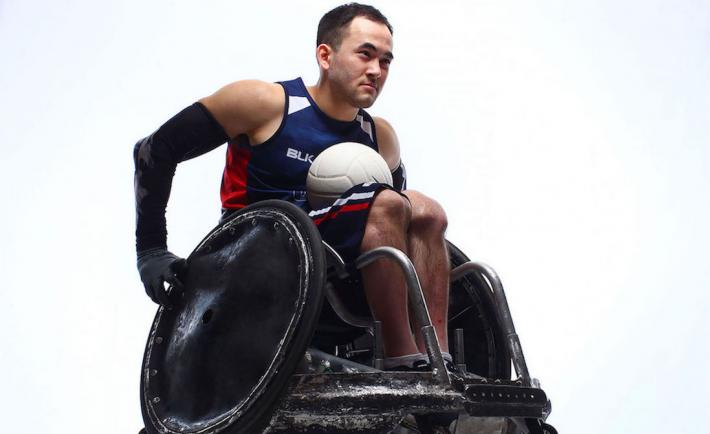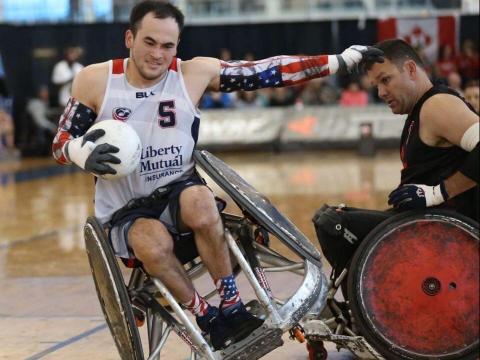I came to NDI this summer with what I would call a “non-traditional” background. For the last eight years of my life I trained, traveled and competed as a member of the U.S. Paralympic wheelchair rugby team. While representing the United States at the Paralympic Games still remains one of the greatest honors and privileges of my entire life, I realized in 2016 that I needed to prepare for the next stage of my life… a stage that would not involve smashing into people on a weekly basis. Not intentionally, at least.
Joining NDI’s Citizen Participation team as a project assistant gave me the opportunity to gain experience on both advocacy and international development, while also allowing me to utilize my first hand experience. What I found remarkable during my time at NDI was the parallel between the values NDI embraces, and those of the Paralympic movement.
Both the Paralympics and NDI work to ensure that the challenges and strengths persons with disabilities face are visible. The work that NDI does to assist disability rights organizations to lobby their legislators to ratify and monitor the implementation of the Conventions on the Rights of Persons with Disabilities (CRPD) in their countries goes beyond simply giving them greater exposure. The Institute educates these groups on how to take effective action to address their needs and protect their rights.
NDI and the Paralympic movement work to empower persons with disabilities while raising their visibility, allowing individuals to transform this increased visibility into concrete actions and change.The Paralympic movement gives athletes with disabilities the opportunity to take center stage, competing around the world for two weeks biennially. The rest of the year is spent raising the visibility and capacity of persons with disabilities through the Agitos Foundation, the development arm of the International Paralympic Committee. Paralympic athletes like myself are also empowered to find our voices as advocates, by writing blogs for them on issues that are important to us and engaging in mentorship programs across the U.S. with students from kindergarten to middle school. This advocacy drove me to become a member of the United States Olympic Committee’s (USOC) Athlete Advisory Council, where I work to ensure the needs of Paralympic athletes are heard and addressed by the USOC. Seeing how my voice can make an impact in a real way inspired me to continue advocating and encouraging others to do the same.
Growing up, I dreamed of playing professional sports. When I first met a person who used a wheelchair like me and was a competitive athlete, I felt like I could do anything. Even if I had not made it to the Paralympic level, knowing that there existed a place where my disability and I were explicitly welcomed was heartening. The same is true at NDI. Inclusion is at the crux of what we do, whether it be with youth, persons with disabilities, LGBTI persons, or ethnic and religious minorities. When NDI and its partners explicitly talk about the importance of inclusion, it resonates with those who often feel excluded.
NDI, and organizations like NDI, that take inclusion seriously and embrace it in their work are a source of hope for those of us in the disability space who can, at times, feel invisible. I can say from first hand experience, that true inclusion really does change lives.


